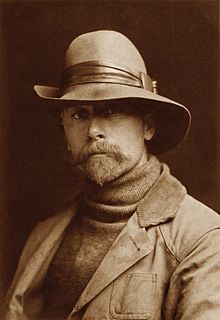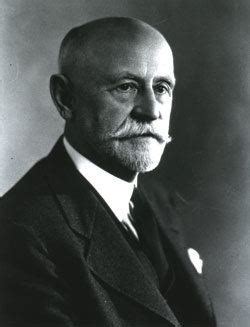A Quote by John Quincy Adams
To furnish the means of acquiring knowledge is the greatest benefit that can be conferred upon mankind. It prolongs life itself, and enlarges the sphere of existence.
Related Quotes
Therefore, in this world he must prepare himself for the life beyond. That which he needs in the world of the Kingdom must be obtained here. Just as he prepared himself in the world of the matrix by acquiring forces necessary in this sphere of existence, so, likewise, the indispensable forces of the divine existence must be potentially attained in this world.
The passing of every old man or woman means the passing of some tradition, some knowledge of sacred rites possessed by no other...consequently the information that is to be gathered, for the benefit of future generations, respecting the mode of life of one of the great races of mankind, must be collected at once or the opportunity will be lost for all time.
To oppose knowledge is ignorant, and he who detests knowledge and science is not a man, but rather an animal without intelligence. For knowledge is light, life, felicity, perfection, beauty and the means of approaching the Threshold of Unity. It is the honor and glory of the world of humanity, and the greatest bounty of God. Knowledge is identical with guidance, and ignorance is real error
The attainment of knowledge is the high and exclusive attribute of man, among the numberless myriads of animated beings, inhabitants of the terrestrial globe. On him alone is bestowed, by the bounty of the Creator of the universe, the power and the capacity of acquiring knowledge. Knowledge is the attribute of his nature which at once enables him to improve his condition upon earth, and to prepare him for the enjoyment of a happier existence hereafter.
Turn your face toward the sacred Mosque (Koran 2:144,149,150) Commentary: The word "sacred" means that a heart which has not disengaged itself from the sphere of the soul and the sphere of created beings is forbidden to penetrate into this place. . . . "Wherever you are, turn your face" [toward the sacred Mosque] means, "Wherever you are, in the accomplishment of works of worship or in the ordinary acts of life, contemplate Him - in what you eat, in what you drink, in him or her whom you marry, always knowing that He is at once the Contemplator and the Contemplated. . . ."
The state tends to expand in proportion to its means of existence and to live beyond its means, and these are, in the last analysis, nothing but the substance of the people. Woe to the people that cannot limit the sphere of action of the state! Freedom, private enterprise, wealth, happiness, independence, personal dignity, all vanish.
Receiving the Eucharist means adoring Him whom we receive. Only in this way do we become one with Him, and are given, as it were, a foretaste of the beauty of the heavenly liturgy. The act of adoration outside Mass prolongs and intensifies all that takes place during the liturgical celebration itself.
































